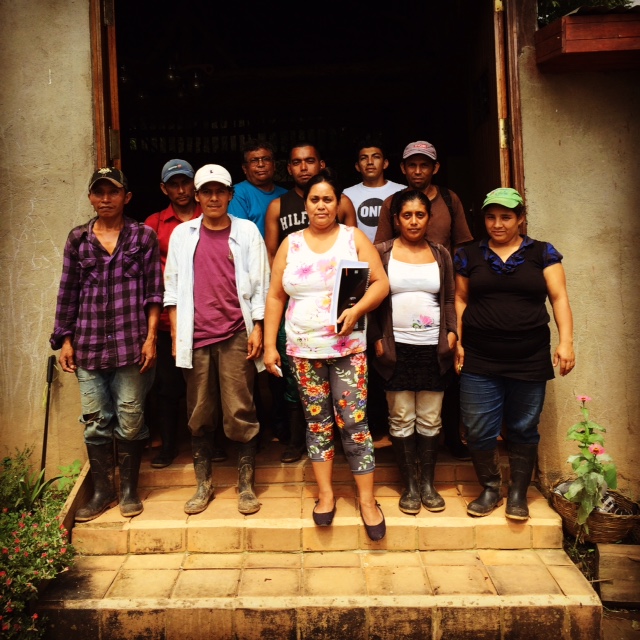Tomorrow marks the first-ever International Coffee Day. The International Coffee Organization (ICO) calls it “an opportunity for coffee lovers to share their love of the beverage and support the millions of farmers whose livelihoods depend on the aromatic crop.”
To mark the occasion, the ICO has launched a campaign with the international humanitarian organization Oxfam that invokes the beautiful Italian tradition of caffè sospeso: consumers who can afford it pay for two cups of coffee but receive only one. The cost of the other goes to a person in need whom they will never meet. Proceeds will fund Oxfam’s work with smallholder coffee growers around the world.
At Catholic Relief Services and Lutheran World Relief, we know from more than a decade of work in the coffeelands in Africa, Asia and the Americas that the small-scale family farmers who grow most of the world’s coffee are at a structural disadvantage in a global economy that rewards efficiency and scale. We also know that initiatives like caffè sospeso can have a real impact on smallholder farmers, helping them improve access to seed, fertilizer, training, finance and markets.
So whether you are brewing your coffee at home tomorrow or handing a few dollars over to a barista, consider supporting the caffè sospeso campaign or other projects benefitting smallholder coffee farmers.
But don’t stop there. Beyond the small-scale farmers who grow your coffee are countless millions of farmworkers — the men, women and children who toil in anonymity in the coffee fields to make your daily habit possible, sometimes under conditions that are an affront to human dignity.
.
.
For a quarter-century, the coffee sector has innovated and invested to improve the living conditions of smallholder farmers. But coffee farmworkers have been mostly on the margins of those efforts. On this inaugural International Coffee Day, we invite you to honor all the millions of people who labor to get that cup to you, including farmworkers.
You can start by asking Congress to pass the Business Supply Chain Transparency on Trafficking and Slavery Act of 2015, a landmark piece of legislation that would obligate companies with more than $100 million in annual sales revenues to make yearly public disclosures of their efforts to identify and address risks of forced labor, slavery, human trafficking and the worst forms of child labor in their supply chains.
Thanks to the U.S. Department of Labor, we know that child labor is present in the coffee sectors of 14 countries around the world. But we don’t know much about what U.S.-based coffee companies are doing to address the issue. This legislation would remedy that.
Based on our experience, we don’t think the other labor practices in the bill—forced labor, slavery and human trafficking—are epidemic in coffee, but we can’t be sure. We know these conditions are present in other agricultural supply chains and we know coffee is an agricultural product. Believing that coffee might be somehow immune to the ills that ail other crops is wishful thinking.
This worthy legislation would provide all of us a clearer picture of the labor behind your daily cup of coffee, promoting a culture of supply chain transparency in the coffee sector. And it would assist consumers who want to leverage their spending for positive social change make more informed decisions.
Most importantly, it would help raise the profile of farmworkers as it seeks to protect them from the worst labor practices in the global economy — farmworkers who are mostly invisible even though they are the most numerous and most vulnerable participants in coffee supply chains.
So however you take your coffee tomorrow, be sure to take a moment to raise your cup to coffee farmers and farmworkers. And then get in touch with your representatives in Congress.
—Michael Sheridan
Michael Sheridan is Coffeelands Program Director for Catholic Relief Services. He is a member of the Specialty Coffee Association of America (SCAA) Sustainability Council, where he chairs the Farmworker Committee.
—Rick Peyser
Rick Peyser is Senior Relationship Manager for Coffee & Cocoa for Lutheran World Relief. He is a former president of the SCAA.



